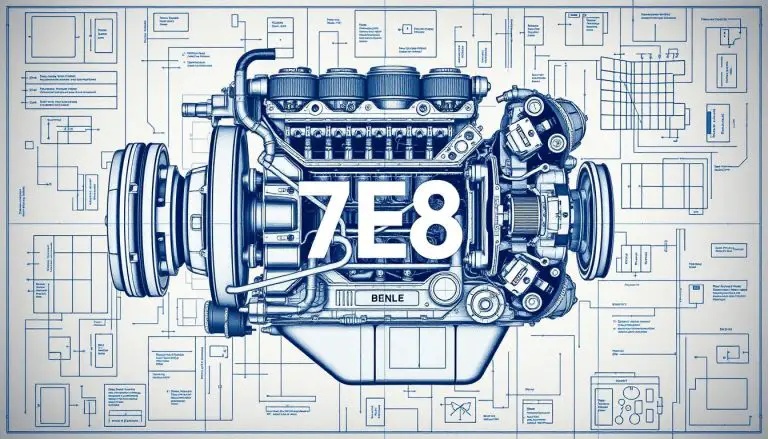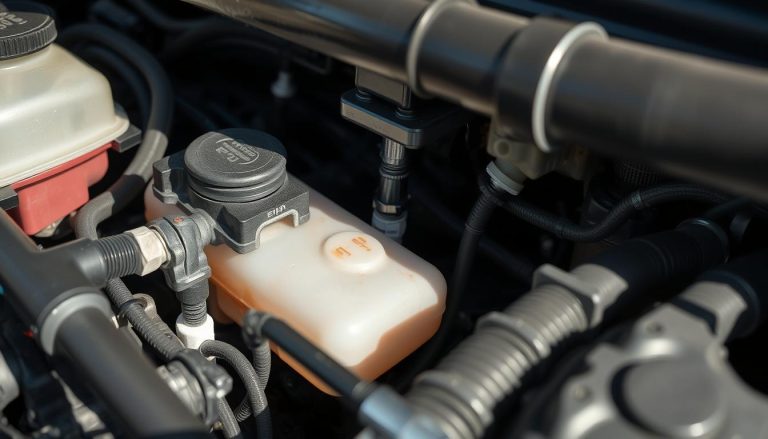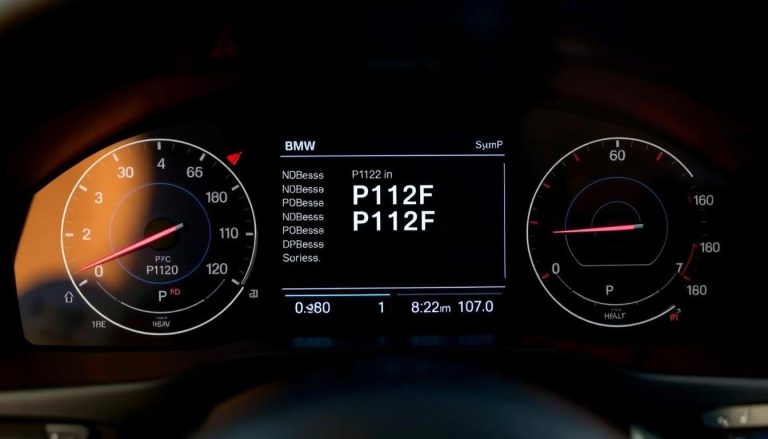If you’re a car enthusiast or just someone who relies on their vehicle to get from point A to B, navigating the world of diagnostic trouble codes can be daunting. One such code that might pop up on your dashboard is P0358. This seemingly cryptic code holds significant importance when it comes to your car’s performance and reliability.
Understanding what it means and how to address it can save you both time and money in repairs down the line. Let’s dive into what this code signifies, its implications for your vehicle, and how you can tackle any issues head-on!
What does the P0358 code mean?
The P0358 code is a diagnostic trouble code that indicates there’s an issue with the ignition coil H primary/secondary circuit. This component plays a crucial role in your vehicle’s ignition system by ensuring that the spark plugs receive adequate voltage to ignite the air-fuel mixture.
When this code triggers, it signals a malfunction within the electrical circuitry of ignition coil H. The problem could stem from various sources, such as wiring issues or faulty components.
If you see this code, it’s essential not to ignore it. Addressing it promptly can prevent further complications and keep your engine running smoothly. Ignition coils are vital for optimal performance; when one fails, others may struggle too. Understanding what P0358 means sets the foundation for effective troubleshooting and repairs down the road.
What parts can be affected by P0358 code ?
The P0358 code primarily points to issues with the ignition coil system, specifically the “H” cylinder. This component is crucial for generating the high voltage needed to ignite fuel in your engine.
If there is a malfunction, it can have a ripple effect on several related parts. The ignition coil itself may be damaged or worn out, leading to poor performance.
Wiring and connectors associated with the ignition coil could also suffer from corrosion or fraying. These issues can disrupt electrical flow, further complicating matters.
Additionally, other components like spark plugs might be affected due to incomplete combustion resulting from an ineffective ignition coil operation. In some cases, this could lead to misfires that hinder overall engine performance.
The powertrain control module (PCM) monitors these systems closely and may throw additional codes if it detects irregularities caused by a faulty ignition circuit.
What are the possible causes of a P0358 code?
The P0358 code often points to various underlying issues within the ignition system. One of the primary causes could be a faulty ignition coil itself. When this component fails, it disrupts the electrical connections needed for proper engine operation.
Another potential culprit is damaged wiring or connectors associated with the ignition coil circuit. Any fraying or corrosion can lead to intermittent signals, triggering this diagnostic trouble code.
Additionally, issues with the Engine Control Module (ECM) might arise. If the ECM misinterprets data from sensors due to software glitches or internal failure, it may incorrectly flag a problem with the ignition circuit.
Problems like spark plug wear or improper installation can also contribute to a P0358 code. Each of these factors plays a crucial role in maintaining optimal vehicle performance and should be examined carefully during diagnostics.
What are the common symptoms of a P0358 code?
When your vehicle throws the P0358 code, it can lead to a range of noticeable symptoms. One of the most common signs is engine misfires. You might feel the car shudder or hesitate during acceleration.
Another symptom is reduced engine performance. This could manifest as sluggishness when you try to pick up speed, making drives more frustrating than usual.
You may also notice that your check engine light comes on. It’s a clear warning that something isn’t right and needs attention.
In some cases, you might experience poor fuel economy due to inefficient combustion processes caused by ignition coil issues.
Additionally, rough idling can occur—your car may vibrate or shake while stationary at traffic lights or stop signs. These symptoms are signals not to be ignored; addressing them early can save you from bigger problems down the road.
What are the diagnostic steps for a P0358 code?
To diagnose a P0358 code effectively, start by connecting an OBD-II scanner to your vehicle’s diagnostic port. This tool will reveal the trouble code along with any related codes present.
Next, visually inspect the ignition coil and its wiring for any obvious signs of damage or wear. Look out for frayed wires or loose connections that may compromise performance.
After that, measure the resistance of the ignition coil using a multimeter. Compare your readings to manufacturer specifications; deviations could indicate a malfunctioning coil.
You should also examine other components in the circuit, such as connectors and relays. A faulty relay can disrupt power supply to the ignition system.
Clear the codes and take your vehicle for a test drive. Pay attention to check if the P0358 code reappears during normal operation.
How serious Is the P0358 Code? Can I continue driving with the P0358 code?
The P0358 code indicates a malfunction in the ignition coil’s primary or secondary circuit. This issue can lead to poor engine performance and increased emissions.
Driving with this code is not advisable. You may experience symptoms like misfiring, rough idling, or stalling. These problems can escalate quickly, making your vehicle less reliable and harder to control.
If you ignore the warning signs associated with a P0358 code, you risk causing further damage to your ignition system or other engine components. Prolonged neglect could result in more expensive repairs down the line.
While some drivers might choose to continue driving short distances while experiencing reduced power, it’s important to address this issue promptly for safety reasons. Taking action sooner rather than later will help maintain both your vehicle’s performance and your peace of mind on the road.
What are the repair solutions for a P0358 – Ignition Coil H Primary/Secondary Circuit Malfunction ?
Repairing the P0358 code typically starts with a thorough inspection of all related components. Technicians will examine the ignition coil, wiring, and connectors for any visible damage or corrosion.
If the ignition coil is faulty, replacing it often resolves the issue. It’s essential to use high-quality parts to ensure reliability.
Sometimes, issues stem from damaged wiring or poor connections in the primary or secondary circuit. Repairing or replacing these wires can restore functionality without needing a complete component overhaul.
In some cases, an engine control module (ECM) problem may emerge as a culprit. Reprogramming or replacing the ECM might be necessary if other solutions fail.
Additionally, performing routine maintenance on your vehicle can help prevent this code from appearing again in the future. Regular inspections are key to identifying potential problems before they escalate into more significant repairs.
How long and How much does it cost to diagnose and repair a P0358 code?
The cost and time to diagnose a P0358 code can vary significantly. Typically, diagnostic fees range from $75 to $150 at most auto repair shops. This fee often covers the mechanic’s labor while they connect your vehicle’s computer to a scanning tool.
Once diagnosed, repairing the issue can take anywhere from one hour to several hours depending on the root cause. Simple fixes like replacing spark plugs or ignition coils may only require an hour of labor.
However, if there are wiring issues or deeper electrical problems, it could extend beyond that. In terms of parts costs, expect to pay between $50 and $400 for replacement components based on what’s needed. Always get a detailed estimate before agreeing to any repairs; this transparency helps you plan financially for unexpected expenses related to the P0358 code.
How can I avoid a P0358 code?
Regular maintenance is key to avoiding the P0358 code. Adhering to your vehicle’s service schedule can keep ignition components in top shape.
Inspect wires and connectors frequently for wear or damage. These parts are often overlooked but can lead to significant issues if neglected.
Using high-quality fuel also plays a role. Subpar fuel may cause misfires, which could trigger various codes, including P0358.
Consider investing in diagnostic tools that allow you to scan for codes before they escalate into bigger problems. Early detection saves time and money.
Don’t ignore warning lights on your dashboard. Address any alerts promptly—this proactive approach helps prevent minor issues from developing into major headaches down the road.
What happens if you ignore a P0358 code?
Ignoring a P0358 code can lead to significant engine performance issues. The ignition coil plays a crucial role in firing the spark plugs, ensuring your engine runs smoothly.
When this code appears, you may experience rough idling or misfiring. Over time, these symptoms can worsen, causing additional strain on other components.
Extended neglect could even result in more severe damage. For instance, continued driving may affect the catalytic converter and lead to costly repairs down the line.
Fuel efficiency often suffers as well. A malfunctioning ignition coil forces your vehicle’s system to work harder, draining fuel quicker than usual.
In some cases, ignoring the warning light might leave you stranded on the road when failure occurs completely. Addressing issues early can save both headaches and money later on.
Is the P0358 code specific to certain car makes or models?
The P0358 code is not exclusive to any specific car make or model. It commonly appears in various vehicles equipped with ignition systems that utilize multiple coils.
Manufacturers like Ford, GM, Honda, and Toyota may report this error code among their models. However, it’s crucial to understand that while the underlying issue remains similar across brands, the components affected can differ based on vehicle design.
Some cars might use integrated coil packs or individual coils per cylinder. This variation affects how the P0358 code manifests in terms of symptoms and repair methods.
If you’re troubleshooting this code, always refer to your vehicle’s service manual for precise diagnostic procedures tailored for your specific model. Familiarity with manufacturer nuances helps streamline repairs and ensures a more effective approach when addressing ignition issues linked to the P0358 error.
What other codes may be related to P0358?
When dealing with the P0358 code, it’s essential to be aware of other related trouble codes that could complicate your vehicle’s performance. Codes such as P0300 (Random/Multiple Cylinder Misfire Detected), P0360 (Camshaft Position Sensor Malfunction), and P0340 (Camshaft Position Sensor Circuit Malfunction) can often appear alongside the P0358 code. These might indicate issues with engine timing or ignition systems, which can exacerbate problems if not addressed promptly.
Understanding these interconnected codes helps in diagnosing underlying issues effectively. It’s always wise to run a full diagnostic check when you encounter a P0358 code, ensuring no critical components are overlooked. A comprehensive approach leads to more accurate repairs and smoother operation of your vehicle overall.
Keeping an eye on multiple codes allows for better preventive maintenance strategies and ensures you’re addressing all potential problem areas rather than just one symptom at a time. This holistic view is crucial for maintaining optimal vehicle function and longevity.


